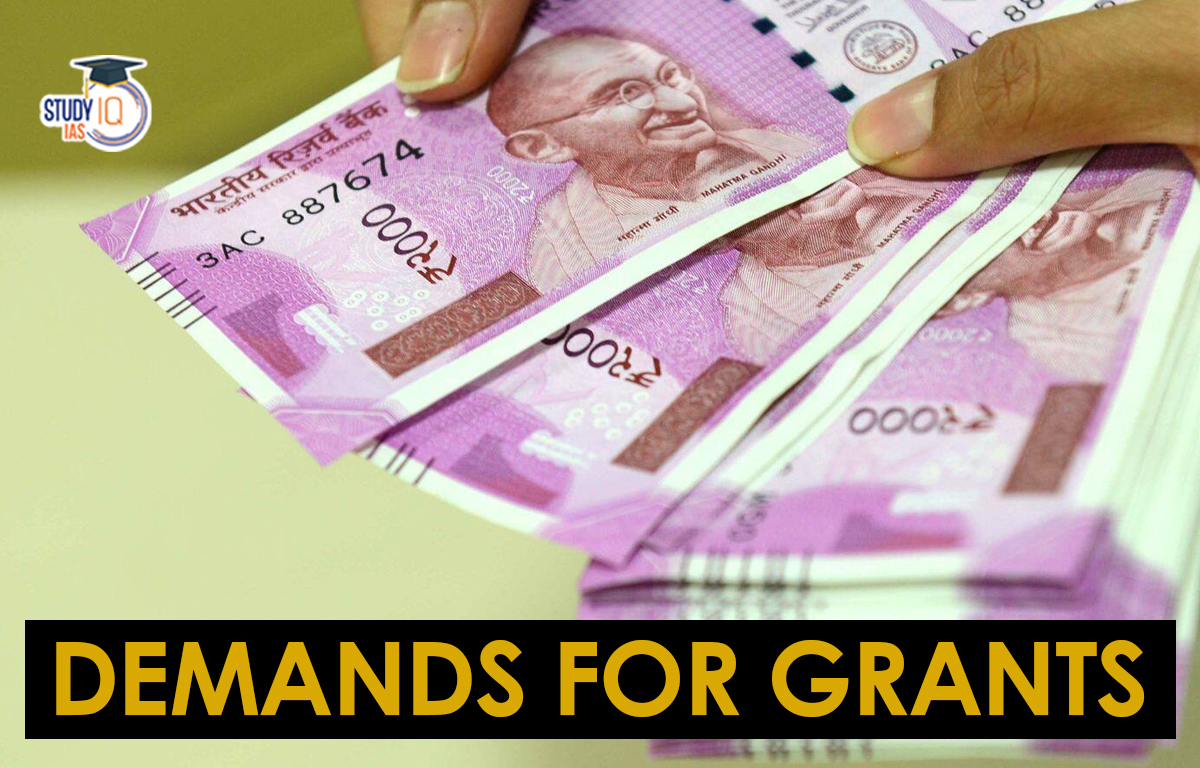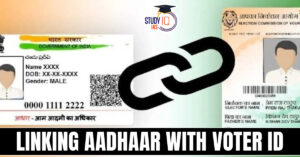Table of Contents
Demands for Grants
According to Article 113 of the Constitution, estimates of expenditure from the Consolidated Fund are presented to the Lok Sabha in the form of Demand for Grants. In contemporary democracies, it is widely accepted that no money may be taken out of the country’s coffers without the government’s consent.
The Demands for Grants is an important part of Indian Polity which an important subject in UPSC Syllabus. Students can also go for UPSC Mock Test to get more accuracy in their preparations..
Demands for Grants Meaning
Provisions for revenue spending, capital expenditures, grants to state governments and union territories, loans and advances, and grant requests are all included in the grant demand. According to Article 113 of the Constitution, every proposal or estimate requesting funds from the Consolidated Fund of India must be submitted to the Lok Sabha in the form of a demand for grants. The grant demand includes charges and voted expenditures.
Charged expenses, like as interest payments, are regarded as the government of India’s liabilities and are not up for vote in the Lok Sabha. On the other hand, voted expenditures consist of revenue and capital expenses that will be made as part of a government plan in the upcoming fiscal year. Typically, each Ministry or Department submits one Demand for Grant.
A Ministry or Department may, however, make multiple Demands, depending on the type of spending. Large ministries with numerous grant proposals include Finance and Defence. For each Union Territory without a legislature, a different Demand is made. Each Demand starts by stating the total amount of expenditure that the Demand is seeking.
Demands for Grants Constitutional Provision
Article 113-Demand for Grants
The Annual Financial Statement’s expenditure estimates from the Consolidated Fund of India are needed. It must be presented as Demands for Grants and put to the Lok Sabha’s vote. No demand for funds may be filed in the Lok Sabha without the President of India’s prior consent, according to Article 113(iii).
Article 112-Annual Financial Statement (Budget)
It represents the government of India’s projected receipts and outlays. The Annual Financial Statement distinguishes between expenditures on the revenue account and other accounts. The Revenue and Capital components are therefore combined to form the Union Budget. The three sections of the receipts and outgoings are Consolidated Fund of India, Contingency Fund of India, and Public Account of India.
Article 114-Appropriation bill
The Lok Sabha receives the introduction of the Appropriations Bill, which includes a vote on all grant requests and charges for their expenses. The Consolidated Fund of India can only be accessed through an Appropriation Bill approved by Parliament.
Article 110-Money bill
The imposition, elimination, remission, modification, or restriction of any tax is covered in Article 110. Under Article 110, the Union government’s ability to borrow money is regulated. In accordance with Article 110 (1)(a) of the Constitution, a Finance Bill detailing the imposition, repeal, remission, adjustment, or regulation of taxes proposed in the Budget is submitted to Parliament concurrently with the Annual Financial Statement.
Articles 117 and Article 274
The Lok Sabha must also have a presidential recommendation before a money bill is introduced. The Finance Bill is accompanied by the yearly financial statement and a certificate signed by the President.
Demands for Grants Process of Preparation
For expenses that will be incurred in the upcoming fiscal year, each ministry files a grant request. Each grant request is prepared in such a way that: It makes a clear distinction between charged and voted expenditures; It divides expenditures into two categories: capital and revenue; Revenue expenditures are operational in nature; Capital expenditures produce some sort of asset for the government
For expenses that will be incurred in the upcoming fiscal year, each ministry files a grant request. Each grant request is prepared in such a way that: It makes a clear distinction between charged and voted expenditures; It divides expenditures into two categories: capital and revenue; Revenue expenditures are operational in nature; Capital expenditures produce some sort of asset for the government.
The breakdown of revenue, charged and voted expenditure, capital expenditure, and the total amount to be spent are all included in a claim for grants. The breakdown of expenditures under various categories of account, a summary of the scheme’s recoveries, and the net amount of cost after subtracting the recoveries are all provided together with a request for funds.
The total amount required providing a service or scheme, which includes income and capital expenditure, loans and advances to the service or programme to be supplied to states and UTs, are also included in the demand for grants.
Demands for Grants Types
The Parliament also makes a number of other Grants in exceptional or unique situations.
Supplementary Grants
When it is determined that the funding for a particular service for the current fiscal year is insufficient, it is granted by Parliament through the appropriation act. The award is presented to Parliament and approved before the fiscal year ends. Article 115 provides for supplementary, additional, or surplus grants.
Additional Grants
It is given when a need for extra spending on a new service that wasn’t planned for in the budget for that year has developed during the current fiscal year.
Excess Grants
It is awarded when the total amount spent on a service during a fiscal year exceeds the amount designated in the budget for that year for that service. After the fiscal year, the Lok Sabha votes on it. Demands for excess grants must be approved by the Public Accounts Committee of Parliament prior to being submitted to the Lok Sabha for voting.
Vote of Credit
It is given in cases where an unforeseen demand on Indian resources arises due to the size or enduring nature of the service. The details often provided in a budget do not allow for the demand to be articulated.
Exceptional Grants
It is not a part of any financial year’s ongoing service. It is given for a certain objective.
Token Grants
When money can be reappropriated to pay for the anticipated spending on a new service, it is awarded. Transferring money from one head to another is referred to as reappropriation. It doesn’t necessitate any more spending.
Demands for Grants UPSC
Provisions for revenue and capital expenditures, grants to state and union territory governments, loans, and advances are all included in the grant demand. For the several initiatives that will run during the upcoming fiscal year, each ministry submits a request for grant funding. Following the process, the government submits them to Lok Sabha as a component of the Union Budget.
Typically, each ministry or organization submits simply one funding submission. Nevertheless, numerous requests are made of significant ministries and organizations. Students can read all the details related to UPSC by visiting the official website of StudyIQ UPSC Online Coaching.


 Linking Aadhaar with Voter ID Endangers ...
Linking Aadhaar with Voter ID Endangers ...
 Article 142 of Indian Constitution, Sign...
Article 142 of Indian Constitution, Sign...
 Pakistan-Occupied Kashmir (PoK): History...
Pakistan-Occupied Kashmir (PoK): History...





















